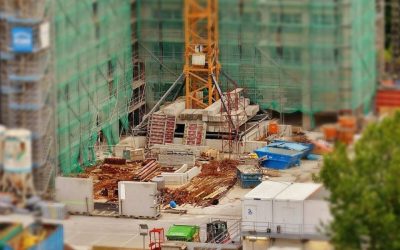Buying a house is a significant investment and one of the biggest commitments you’ll make in your life. While it’s all too easy to get caught up in the excitement of the process, it’s crucial to approach it with a logical mindset to ensure you make the right decision. Before signing on the dotted line, perform these checks to ensure your dream home doesn’t turn into a nightmare.
Financial readiness
You’ve probably jumped through many financial hoops to be lining up to buy a house, but it’s always worth assessing your financial readiness one more time before legally committing.
Consider if you’ve still got the means to afford mortgage payments consistently and all the other costs that come with home ownership. This includes maintenance, council tax, insurance and utility bills. Being financially prepared sets the foundation for a secure and stable buying process.
Location
The location of a property is paramount. It will have an impact on almost every aspect of your life, including your commute to work, how you spend your free time and your general sense of life satisfaction.
Before you commit to a house, review the location again to make sure it works for you. Check train connections, other forms of transport, local amenities and the route you’ll take to and from work. The last thing you want to be stuck with is a house with an awful commute to work or too far away from all your other commitments.
Neighbours and neighbourhood
Location isn’t just about practicality, it’s also about the people and places around you. If you can, it’s always worth scoping out the neighbours before committing to a house and spending some time in the local neighbourhood to get a feel for the place.
Try to picture your routine and lifestyle at home and in the surrounding area. And don’t be afraid to knock on the next door to say hello and have a conversation. What’s the worst that can happen?
Property structure
The property itself should be in an appropriate state to call home, or at least give you a bit of a renovation project to take on. However, you certainly don’t want to take on a property with damp, mould or serious structural issues.
These sorts of factors should be checked in the buying process by a qualified home inspector or surveyor, but making initial checks before reaching this stage can help avoid sunk costs if issues are only found down the line.
Utilities and infrastructure
Understanding the property’s utility connections and infrastructure is always worthwhile before completing a purchase. Factors such as the quality of water supply, broadband speeds, plumbing and electrical systems can be costly to fix or upgrade.
Storage space
Additional storage can be installed anywhere in a house but it’s always a good idea to scope out the existing space available. If you’re bringing lots of belongings from another property, you need to be sure that you can house it all without having to invest in solutions from the get-go. The loft is a good thing to check too, offering invaluable, out-of-the-way storage space.
If everything checks out, you’re in a good position to complete the purchase and move into your new home. How exciting!
- Joe Martin-Bindley Discusses The Best Ways To Buy Property To Let - October 15, 2024
- What Needs to Be Legally Disclosed When Buying a House: Essential Information for Homebuyers - October 3, 2024
- How Mastic Sealant Can Save Your Home from Damage - September 24, 2024


